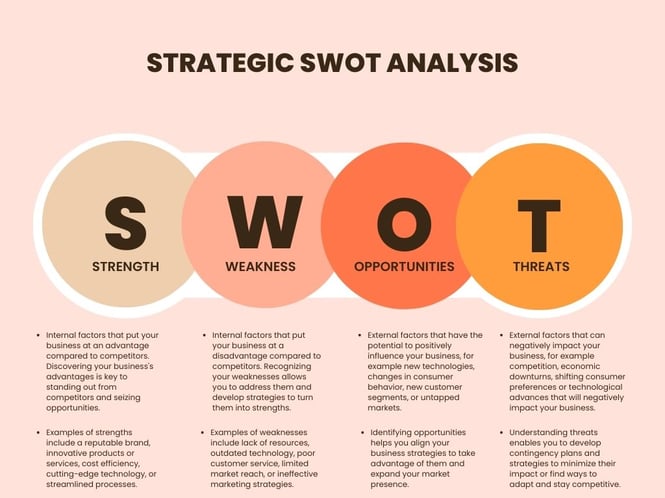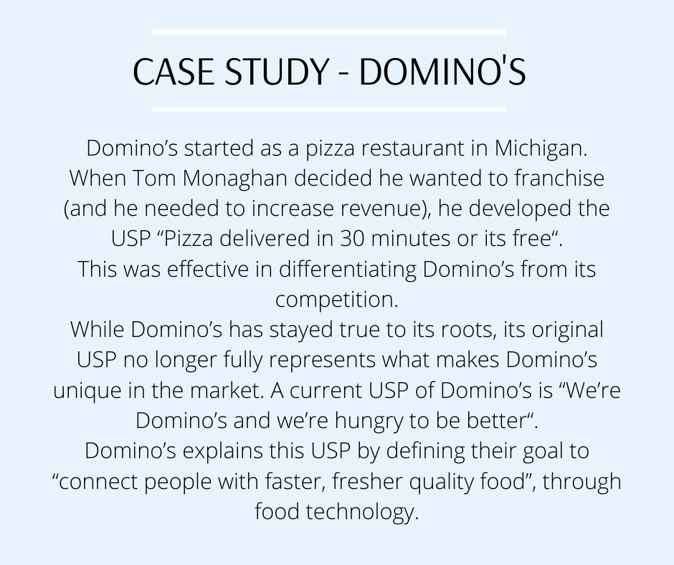Franchising enables you to grow your business and build your brand.
In Part 1 of our series "Can I Franchise my Business?" we covered crucial factors such as branding, consistent business systems and maintaining uniformity.
In addition to these foundational elements, when franchising your business, it's essential to ensure the financials make sense; you need to know that there are opportunities for growth and profitability.
One important factor to consider is the market for your product or service. Is it currently in demand, or is it in a saturated market? Will the need for it be sustainable in the long run? Another crucial consideration is whether a franchise can generate a profitable business venture both for you, as the potential franchisor, and your potential franchisees.
The profitability of the franchise depends on factors such as franchise fees, royalties and other operating costs. Ultimately, before deciding to franchise your business, it's vital to conduct thorough market research and analysis to ensure you make an informed decision.
What is the Market for your Product or Service?
Is the Market for your Product or Service Sustainable?
1 - Analyse your business model
Analysing your company's strengths and weaknesses is always a crucial step in determining the next move for growth.
When considering franchising, it's important to take a deep dive into your current business model and evaluate its effectiveness.
What aspects of the model are thriving and what could use improvement? Are there obstacles within the current structure that might hinder success when replicating your brand through franchises?
Understanding these strengths and weaknesses can help guide you towards your decision to franchise your business or explore other growth opportunities.

2 - What is the market for my product or service?
Before you decide to franchise your business, it is important to conduct thorough market research to assess the potential for success in the desired location.
This involves analysing factors such as the local economy, competition, demographics, and consumer behaviours.
Consider who your current customers are and why they buy from you. If possible, segment your customers into different demographics. Look at age, gender, income and occupation.
You can also segment your customers using psychographics including values, lifestyles, interests and behaviour.
Social media analytics can be an incredibly valuable tool for understanding your target market. Even if someone is not yet a customer, their engagement with your social media can provide valuable information about what they are looking for and what resonates with them. Social media analytics allow you to fill out the picture of your target market and better understand how to reach and engage them.
Also consider your competitors. Who are their current customers? If you franchise your business, will you be targeting the same market as your competitors? If you will be targeting the same market as your competitors is there enough demand to support additional outlets of your product or service?
Once you have analysed your customers, consider your Unique Selling Proposition (USP). Your USP is your point of difference. Knowing and marketing your USP is important to not only attract customers to your brand, but also to attract franchisees.
Ideally, your USP should solve a problem for your customers.

Broadening your market requires careful consideration, but it can lead to significant growth opportunities for your business.
3 - Is the market for my product or service sustainable?
There is no guarantee that the initial demand for a product or a brand will be sustained. The life cycles of products and services may be shortened by technological advances and new competitors may enter the market.
When considering the sustainability of the market for your product or service, it is essential to delve deeper into your target market and thoroughly evaluate your USP. Understanding your target market's needs, preferences, and behaviors will help you assess the long-term viability of your business.
By conducting market research and analysing your target market, you can gain valuable insights into their purchasing habits and determine if there is a sustainable demand for your product or service. Additionally, understanding your USP and how it solves a problem for your customers will help you gauge the market's sustainability.
However, it is important to note that sustainability is not solely dependent on your target market. Economic factors, such as the local economy and competition, play significant roles as well. Analysing these factors will provide you with a comprehensive understanding of the market's sustainability.
Furthermore, it is crucial to stay updated on technological advancements and their potential impact on your market. Rapid technological changes can disrupt markets and render certain products or services obsolete. By staying informed and adapting to technological advances, you can ensure the long-term success and sustainability of your business.
Lastly, environmental and social factors can also influence market sustainability. Taking these factors into account and addressing any potential challenges they pose will contribute to the overall resilience and longevity of your business.
4 - Do the $ work?
When assessing whether you can franchise your business, it is crucial to ensure that the franchise system is not only beneficial for you as the franchisor but also for your potential franchisees. Franchising is a partnership that should be mutually advantageous, with both parties working together towards success.
Consider the financial implications for both you and your potential franchisees. Franchise fees, royalties, and other operating costs should be carefully analysed to ensure that they are reasonable and fair. It is important to strike a balance between profitability for the franchisor and a reasonable return on investment for the franchisees. Conducting thorough financial modeling and working closely with your accountant or business adviser can help you determine if the financials make sense for both parties involved.
Franchisee Return
To get a basic idea of whether your business could work as a franchise outlet, it is essential to prepare a comprehensive business plan for your existing business. This business plan will serve as a foundation for evaluating the potential success of franchising your business.
Start by conducting a detailed analysis of your current business model, identifying its strengths and weaknesses. Assess the profitability, operational efficiency, and customer satisfaction levels of your business. This analysis will provide valuable insights into the feasibility of replicating your business through franchises.
Once you have a clear understanding of your current business's performance, you can start incorporating the financial aspects of a franchise model. Begin by including royalties, which are ongoing fees paid by franchisees to the franchisor for the use of the brand and intellectual property. Calculate these royalties based on industry standards and ensure they are reasonable and fair for both parties involved.
Next, consider advertising fees. These are ongoing fees paid by the franchisees to the franchisor for group advertising and related expenses. It is important to remove any advertising costs incurred by the business in its current form and allocate them to the franchise model. This will help determine the appropriate advertising fees for franchisees.
Additionally, identify any other regular fees that may be included in a franchise model. These could include training fees, technology fees, or support fees. Evaluate the necessity and potential impact of these fees on both the franchisor and franchisees.
As you incorporate these financial aspects into your business plan, ensure that they align with your overall business goals and objectives. The financial viability of the franchise should be carefully considered to ensure a mutually beneficial partnership between the franchisor and franchisees.
To enhance the credibility of your business plan and financial projections, consider seeking guidance from professionals such as accountants or business advisers. They can provide valuable insights and expertise to help you accurately assess the potential profitability and success of franchising your business.
Franchisor Return
In addition to forecasting whether the current business can work as a franchise outlet, it is crucial to prepare a projected profit and loss statement for your franchisor business. This statement will provide a clear picture of the financial viability and potential profitability of the franchise.
When preparing the profit and loss statement, it is important to consider all sources of revenue for the franchisor. This includes upfront franchise fees, which are the initial fees paid by franchisees to join the franchise system. These fees should be carefully calculated to ensure they cover any initial investments and set the foundation for a profitable partnership with franchisees.
Another source of revenue to consider is franchise royalties.
Additionally, advertising fees should be included in the profit and loss statement. These fees are paid by franchisees to the franchisor for group advertising and related expenses. It is important to allocate these fees to a separate marketing fund, which should operate in accordance with the Franchising Code of Conduct. As the franchisor, it is your responsibility to contribute to the marketing fund at the same rate as each of your franchisees if you continue to operate your business.
To accurately forecast the financials of your franchisor business, it is recommended to work closely with your accountant or business advisor. They can assist in preparing detailed financial modeling that takes into account all revenue streams, expenses, and potential growth opportunities. This financial modeling will help you assess the profitability of the franchise and determine if it is a viable and lucrative business venture for both you and your potential franchisees.
By carefully considering the projected profit and loss statement, you can make informed decisions about franchising your business. This financial assessment will provide valuable insights into the potential financial success of the franchise, ensuring that it aligns with your overall business goals and objectives.
Key Takeaways
Franchising can be a valuable tool for business owners to expand their reach, but there are key components that those considering franchising need to consider before making the move.
The key questions that we have set out in this article if you are considering franchising your business are:
What is the market for my product or service?
Is the market for my product or service sustainable?
By taking the necessary steps, such as analysing your current business model, understanding your financials, conducting market research and understanding associated franchise fees you can more easily decide whether or not franchising is right for you.
Also keep in mind that any questions you may have during the process should always be addressed and answered thoroughly by professionals that have experience in franchising so that you feel confident in making an informed decision.
Disclaimer
The information in this article is general in nature and is not intended to address the circumstances of any person or other entity. Although we do our best to provide timely and accurate information, we do not guarantee that the information in this article is accurate or that it will continue to be accurate in the future.









